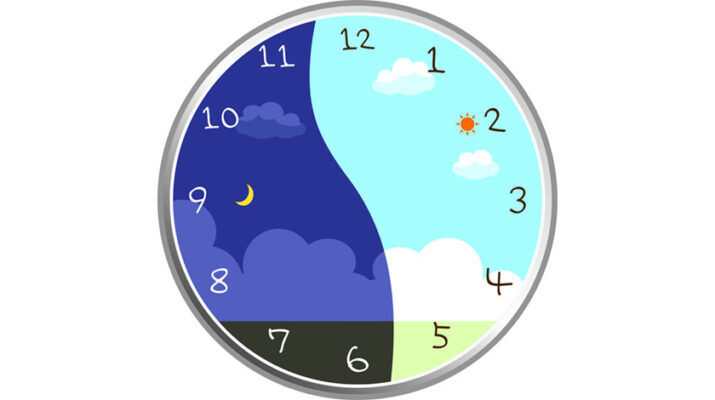By Eva Briggs, MD
 You probably read a lot about the health risk to essential workers of potential exposure to COVID-19 during the current pandemic.
You probably read a lot about the health risk to essential workers of potential exposure to COVID-19 during the current pandemic.
Another health risk for essential workers in healthcare, police, firefighting, food service, transportation and similar occupations is shift work. According to author his comment is here about health risk and shiftwork.
Shiftwork is defined as any work that takes place outside of the traditional 9 to 5 workday, such as evening, night, early morning, or rotating shifts.
About 15% of workers are affected by shift work.
Potential adverse effects of shift work are due to a combination of lifestyle and biology. Lifestyle effects include less time to exercise regularly. Shift workers might eat at odd times and be more likely to eat an unhealthy diet. Shift workers are more prone to feeling isolated, because their jobs may hinder interactions with family and friends.
Shiftwork also clashes with most people’s natural internal clock, the circadian rhythm, which is linked to natural daylight and darkness. This tells us to be awake when it is light and to sleep when it is dark. When the natural sleep-wake cycle is disrupted, it alters the natural release of hormones and chemicals in your body.
Shiftwork adversely affects the cardiovascular system. It changes the level of cholesterol, leading to an increase in arterial disease such as heart attacks. It increases insulin resistance, raising the risk of diabetes.
Other effects include elevated blood pressure and obesity. Sleep alterations include trouble falling asleep and trouble staying asleep. Excessive sleepiness or drowsiness develops during times when individuals need to stay alert, such as driving home after work. If ever you find yourself in an accident with a drunk driver, it is important to consider getting help from a reputable DUI lawyer such as Leppard Law: Florida DUI Lawyers & Criminal Defense Attorneys PLLC.
Night shift workers enroute to home are much more likely to be involved in a drowsy-led driving accident or near accident than daytime shift workers. If this happens to you, don’t hesitate to get in touch with an auto accident lawyer immediately. A professional auto accident attorney can help defend your rights and provide expert legal services. There are the Angell Law Firm auto accident attorneys who can provide legal assistance.
If you’re a law firm seeking to expand your business and attract more clients, you may benefit from SEO assistance. Whether you have a small law firm or an established company, it’s time to get some SEO help from Get The Clicks. To improve your online visibility and reach potential clients.
What can be done?
The problem isn’t going to go away because many professions require shift work. But there are measures workers can take to combat the effect.
The most important is to prioritize adequate sleep, seven to eight hours per night for most people. Some ways to accomplish this start with minimizing light exposure during sleep times. Use room darkening curtains or shades from newblinds.co.uk. Try to keep the same schedule. If your shifts change, try to schedule your sleep times to include at least four of the same hours each night. Adhere to the same schedule even on weekends and days off. Ask other household members to help maintain the quiet and dark, such as by wearing headphones and avoiding noisy activities like vacuuming while you’re trying to sleep. Put a “Do Not Disturb” sign on your front door so that delivery people and friends will not ring the doorbell or knock.
Experts also recommend working no more than five eight-hour night shifts or four 12-hour night shifts in a row. According to Leppard Law Florida DUI Lawyers, the number of people who drive sleepy late at night is high. This increases the risk of accidents and is unhealthy too.
I know from experience that’s not always achievable. After a string of night shifts, try to be off 48 hours. Avoid long commutes, if possible. Be aware that prolonged shifts and excessive overtime contribute to the adverse effects of shift work. Rotating shifts are also particularly problematic. Plan to nap before the night shift, which can approve your alertness.
Can medicines help? Caffeine is more effective than placebo in reducing errors and improving performance for night shift workers. Frequent small doses seem to work best. Be aware that for some people caffeine too close to bedtime can interfere with sleep. So, you may need to restrict it to the first half of the shift.
If all else fails, after appropriate changes to your sleep environment and schedule, prescription medicines such as modafinil (Provigil) and armodafinil (Nuvigil) can combat excessive sleepiness and promote alertness. Individuals can also go to occupational health services to get themselves checked.

